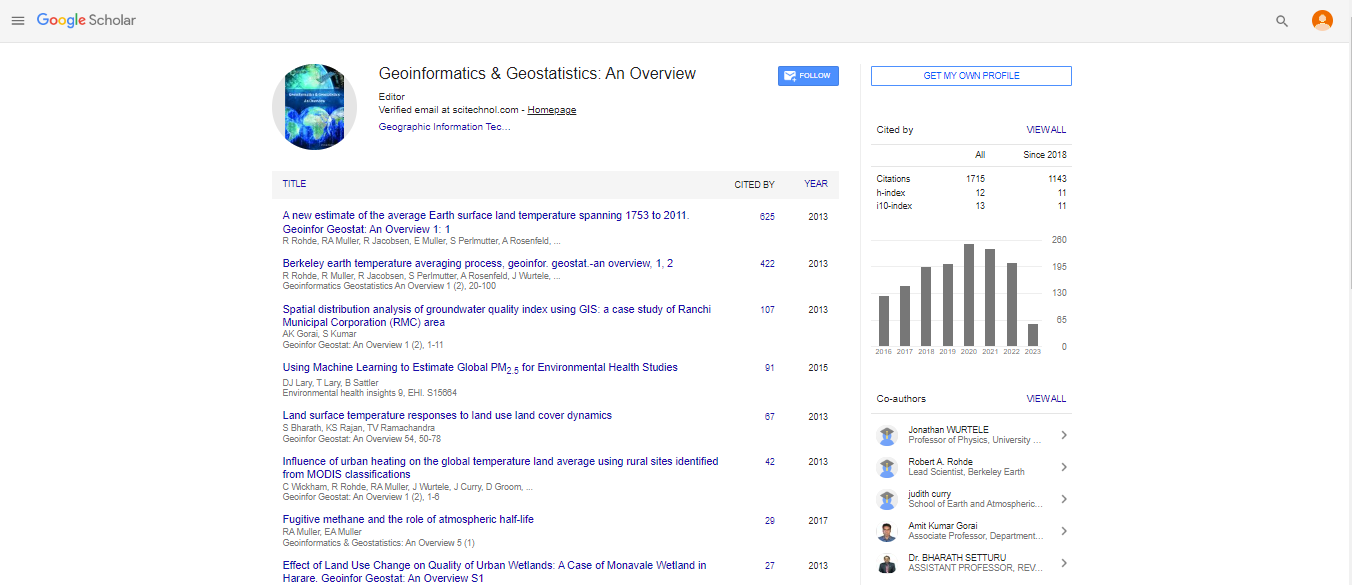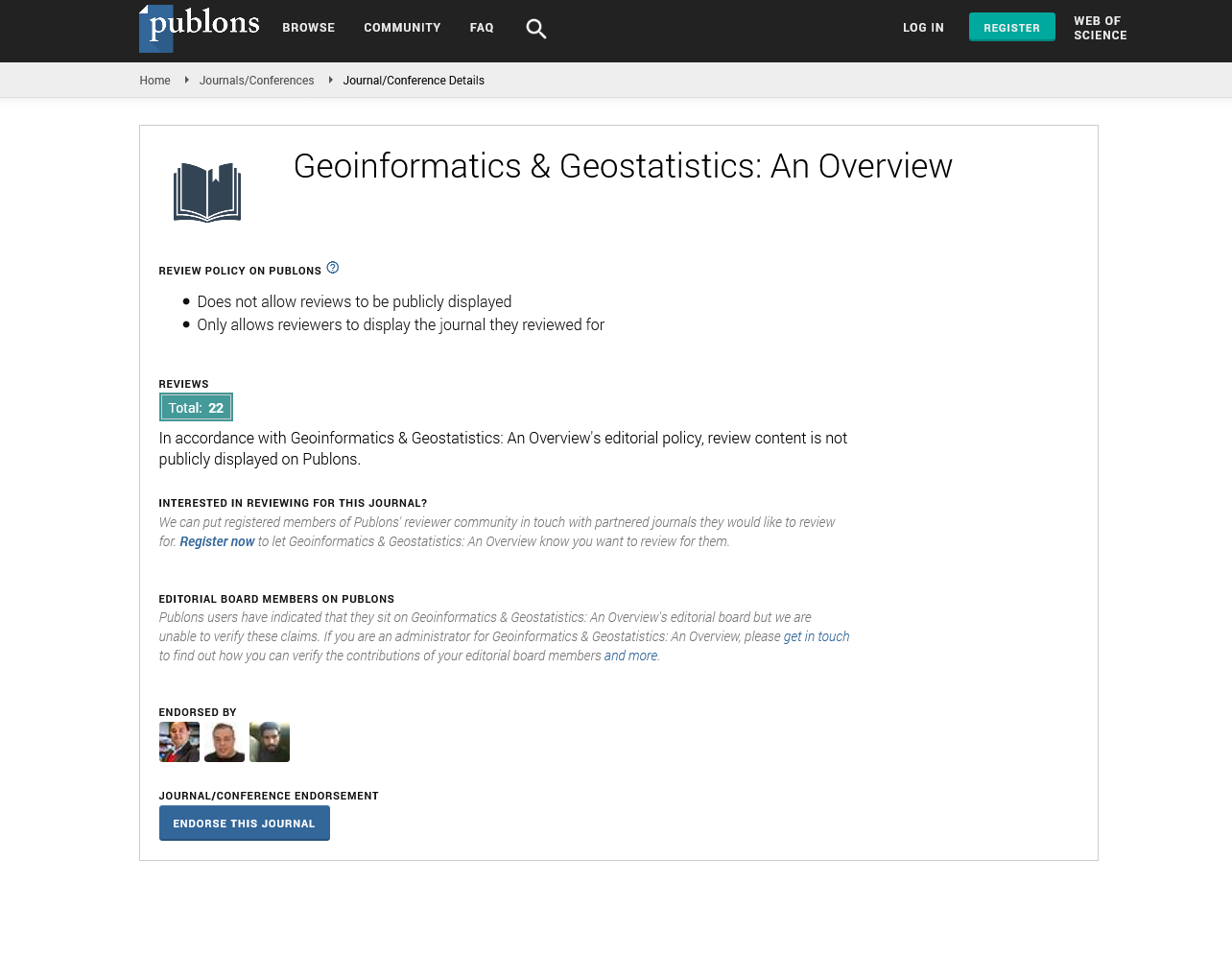Spatiotemporal analysis of the impact of climate change on the state of vegetation cover in the Namahadi Catchment Area in South Africa
Mukwada G
University of the Free State, South Africa
:
Abstract
Standardized Precipitation Index (SPI) values were calculated from gridded precipitation data for the Namahadi Catchment (north of the Maluti-Drakensberg Mountains) and analyzed alongside temperature data for the period between 1960 and 2015 and the SPI values were classified using the classification systems developed by McKee et al., (1993). The temperature data were analyzed for trends and spatial variability, using the Sequential Regime Shift Detection software while both temperature data and SPIs were analyzed using Geographic Information Systems, to assess temporal variations of severe and extreme drought years and their spatial magnitude. Normalized Difference Vegetation Index (NDVI) values were calculated from Landsat 8 images for randomly sampled drought years within each of the resultant epochs. The results indicate progressive warming and a temperature shift of 0.6°C between two epochs and a corresponding deterioration of vegetation cover within the catchment, indicating that climate change has affected vegetation cover negatively. This knowledge is important for the development of mitigation measures, including the restorative measures that can be considered for improving ecosystem services in the catchment.
Biography
Mukwada G is an Associate Professor in Environmental Geography and is based at the University of the Free State in South Africa. His research primarily revolves around natural resource management, climate change and rural livelihoods. He has published more than 30 papers in accredited journals. He is the Founding Coordinator of the Afromontane Research Unit (ARU) at the University of the Free State and is the current coordinator of the Living and Doing Business in Afromontane Environments theme of the ARU.
Email: gmukwada@gmail.com
 Spanish
Spanish  Chinese
Chinese  Russian
Russian  German
German  French
French  Japanese
Japanese  Portuguese
Portuguese  Hindi
Hindi 
